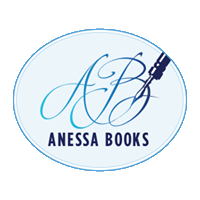 The trial concerning the potential merger of Simon and Schuster and Penguin Random House has drawn to a close with some incredible revelations. Joanna Penn, in her podcast, The Creative Penn, talked about three major points made by Jane Friedman in her Hot Sheet Newsletter (yes, this is third-hand information, sorry! Someday soon, I’m actually going to subscribe to the Hot Sheet. It’s really a great and useful newsletter for authors wanting to know more about the business side of publishing). These three points are, in my opinion, vital information for authors—both self and traditionally published.
The trial concerning the potential merger of Simon and Schuster and Penguin Random House has drawn to a close with some incredible revelations. Joanna Penn, in her podcast, The Creative Penn, talked about three major points made by Jane Friedman in her Hot Sheet Newsletter (yes, this is third-hand information, sorry! Someday soon, I’m actually going to subscribe to the Hot Sheet. It’s really a great and useful newsletter for authors wanting to know more about the business side of publishing). These three points are, in my opinion, vital information for authors—both self and traditionally published.
The first is that NO ONE KNOWS WHAT WILL SELL! Yes, I had to put that in all caps. Even the wealthiest, largest traditional publishers (that includes all of the Big Five, perhaps soon to be Big Four?) do not know what books will take off and be best sellers. They admitted that contracting for a book with even a big-name author is like throwing spaghetti at a wall and seeing if it sticks. It’s a crap-shoot, a gamble.
So, if anyone tells you that if you write X, it is guaranteed to sell, they’re lying! Nothing is guaranteed to sell, and no one knows what will sell.
Yes, there are some authors who people will just purchase their next book no matter what it is just because their name is on the cover, but that doesn’t mean it’s going to be a good book, nor does it mean it’s going to be a best seller.
If that is the case, then it means that the opposite could be true as well. If you (a lesser known author—and by that I’m assuming that Stephen King and Nora Roberts are not reading this blog post) write a fantastic book and somehow market it really well so that a great number of people discover it and then tell all their friends about it—including independent bookstore owners, major social media influencers, etc—then, yes, you could become a best-selling author.
Another take-away from the trial that I (and others) found fascinating was that just 4% of the profitable titles drive 60% of the revenues at Random House. Stop and think about for a moment. Four percent of all the books published earn sixty percent of the profits. That’s pretty incredible.
Along the same lines, the CEO of Hatchett admitted that only half the books they publish earn any profit at all. HALF! That means that half of their books don’t.
Let’s put that into personal terms… Think about all the books you’ve published. Do all of them earn money all the time? I doubt it. Mine certainly don’t. In the last 90 days, 31 of my 43 books sold at least one copy (and that’s including some that almost never sell like my Chapter One Workbook (sold 2 copies!!) and my Meredith Bond Reading List (sold one copy!! Why? God only knows, but now I’m going to update it just in case someone else decides to buy it, and goodness, make it a new cover!).
Already, I’m doing better than Hatchett! More than half of the books I have for sale (oh, and that number, 43, includes box sets) have sold at least one copy. That’s amazing!
There are always books we write because they are books of passion, books we just have to write no matter whether or not they will ever sell. My Children of Avalon books are like that. They were a very brief foray into writing Arthurian fantasy that I just had to try. I loved those books. I love writing them. I’m never going to write another Arthurian fantasy ever again because they don’t sell! It’s nothing to do with the books themselves, it’s the genre and readers’ expectations of what “Meredith Bond” writes. Yep, they are outside of my “brand”.
Does that mean that you shouldn’t write a book of your heart? Absolutely not! You should write that book. Just don’t expect that it will sell well. And if it does then, damn!, go for it and write more!!
The last take-away from Joanna Penn’s reporting (yeah, I think this is number four… I never claimed to be good at math) is that there are 20,000 books published per week on Amazon. Let me spell that out for you again: TWENTY T H O U S A N D BOOKS per week published.
And we wonder why we have so much trouble with discoverability! Ha! Well, maybe you don’t wonder about that, and if you don’t, you’re right, you shouldn’t because your book that you just published or are just planning on publishing is a tiny little drop in a very large ocean. On the other hand, if you’ve got dedicated readers, a newsletter list, and a following on social media, at least some people will learn about your release and hopefully they’ll tell some friends and they’ll tell some social media influencers, and they’ll mention it to some book buyers at bookstores and, hey, you could become a best seller with that one tiny little drop!
Good luck!
